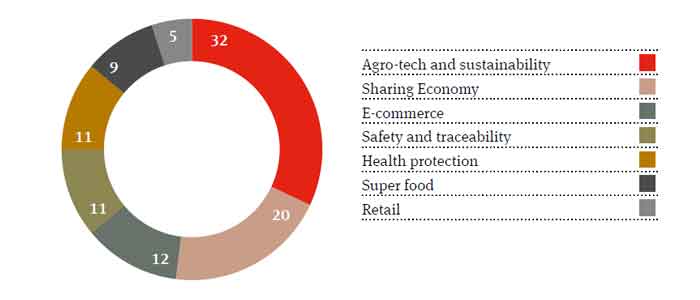The growth of innovative companies in the agricultural market has been accompanied by increased recognition from financial and public institutions, who appreciate the long term benefits of financing agricultural activities.
The Lombardy Region, who hosted the Expo with Unioncamere, has since launched “Start-up per Expo’, which will provide €1.5 million in funding to 25 selected innovative start-up businesses.
Emilia Romagna has also announced a schedule of competitions for 2016, which are worth €1 billion. The competitions aim to further expand the region’s food and agri-business sector, which increased three per cent in 2015 and now constitutes 20 per cent of the national total. This will be achieved through increasing exports and encouraging innovation in the region’s supply chain of over 20,000 businesses.
At a national level, the Ministry of Agriculture and Forestry has established a private equity fund worth €20 million to guarantee loans to innovative businesses operating in the agri-business sector. This fund falls within an overall framework of government intervention, with €160 million assigned to the agri-business sector. The investments aim to create a generation of young agricultural entrepreneurs, who will exploit market opportunities, through subsidized or interest-free loans of €60–80 million and tax credits, for the e-commerce activities of agro-business products.
“Investing in agriculture does not mean looking at the past, but using new tools to interpret the future.”
Maurizio Martina, Minister of Agriculture, Food and Forestry Policies.
In addition to these initiatives, the Ministry of Agriculture, Food and Forestry Policies and UniCredit have agreed to establish the “Cultivating the Future” project. This project provides €6 billion over a three-year period (2016–2018), to support investments and access to credit for agri-business enterprises, by promoting a program of training courses and through the development of innovative technological solutions.
UniCredit’s new Agribond will be launched in May which is dedicated to businesses in the agricultural supply chain. The State guarantee provided by ISMEA, Istituto di Servizi per il Mercato Agricolo Alimentare, will permit initial disbursements of €300 million, which may be increased over time.



